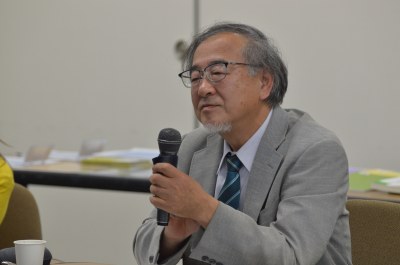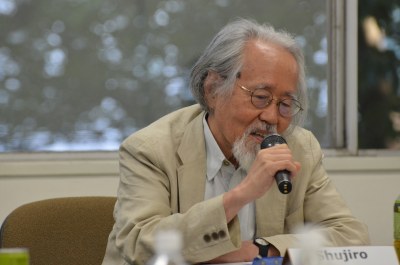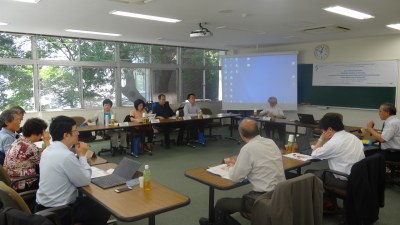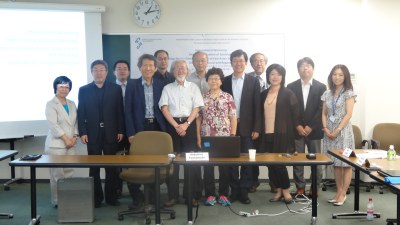

NEWS
2017.07.26
Date of Workshop: May 21, 2017
<Synopsis>
The “Internationalization of Sociology” workshop was co-hosted by the Yazawa Research Team and Seijo University’s Center for Glocal Studies, under the sponsorship of a Science-In-Aid Grant of the Japan Society for the Promotion of Science. For three years, the Yazawa Research Team has highlighted trends and issues in the cross-border educational and research activities of sociologists in Japan and overseas. This year marks the final year of their work. The team wanted to communicate their findings, obtain feedback from international attendees, and formulate further research projects. This workshop was organized to help fulfill these objectives.
<Report>
The workshop consisted of four presentations by team members: “Historical and Institutional Background of Sociology in Japan” (Shujiro Yazawa), “The Position of Japan and East Asia in World Sociology: Investigation Into Academic Mobility and Involvement in International Research Activity” (Hidehiro Yamamoto), “How East Asians Fare: Patterns of Cross-Border Academic Transactions in East Asia” (Daishiro Nomiya), and “Is It Better to Study Abroad?: Globalization and Career Paths for Sociologists in Japan” (Nobuko Hosogaya, Saeko Kikuzawa, and Chika Shinohara).
Additionally, international researchers presented cases from their countries and commented separately on various issues. These individuals were Sang-Jin Han (from South Korea), Zhang Yi (from China), Young Hee Shim (from South Korea), and Chen Jay Chih-Jou (from Taiwan). Each of the overseas attendees was a prominent East Asian researcher with global perspectives. As such, their commentaries were very insightful and contributed to an animated discussion.
One of the key points concerned the fact that Japanese sociologists engage in relatively few cross-border interactions in education and research compared to their counterparts in China, South Korea, and Taiwan. The attendees argued that this trend is related to the fact that obtaining a degree overseas offers scant benefits to Japanese researchers in the early stage of their careers. This situation is in marked contrast to the Chinese, Korean, and Taiwanese models of social development. These models aim to meet the pressures of modernization by emphasizing overseas study and overseas qualifications as important selection criteria and metrics for intellectual contribution.
The Yazawa Research Team plans to examine cross-border interactions in the sociological research and education of China, South Korea, and Taiwan. In this respect, the workshop proved valuable in communicating the team’s findings to an East Asian audience and forming a platform for future research.



